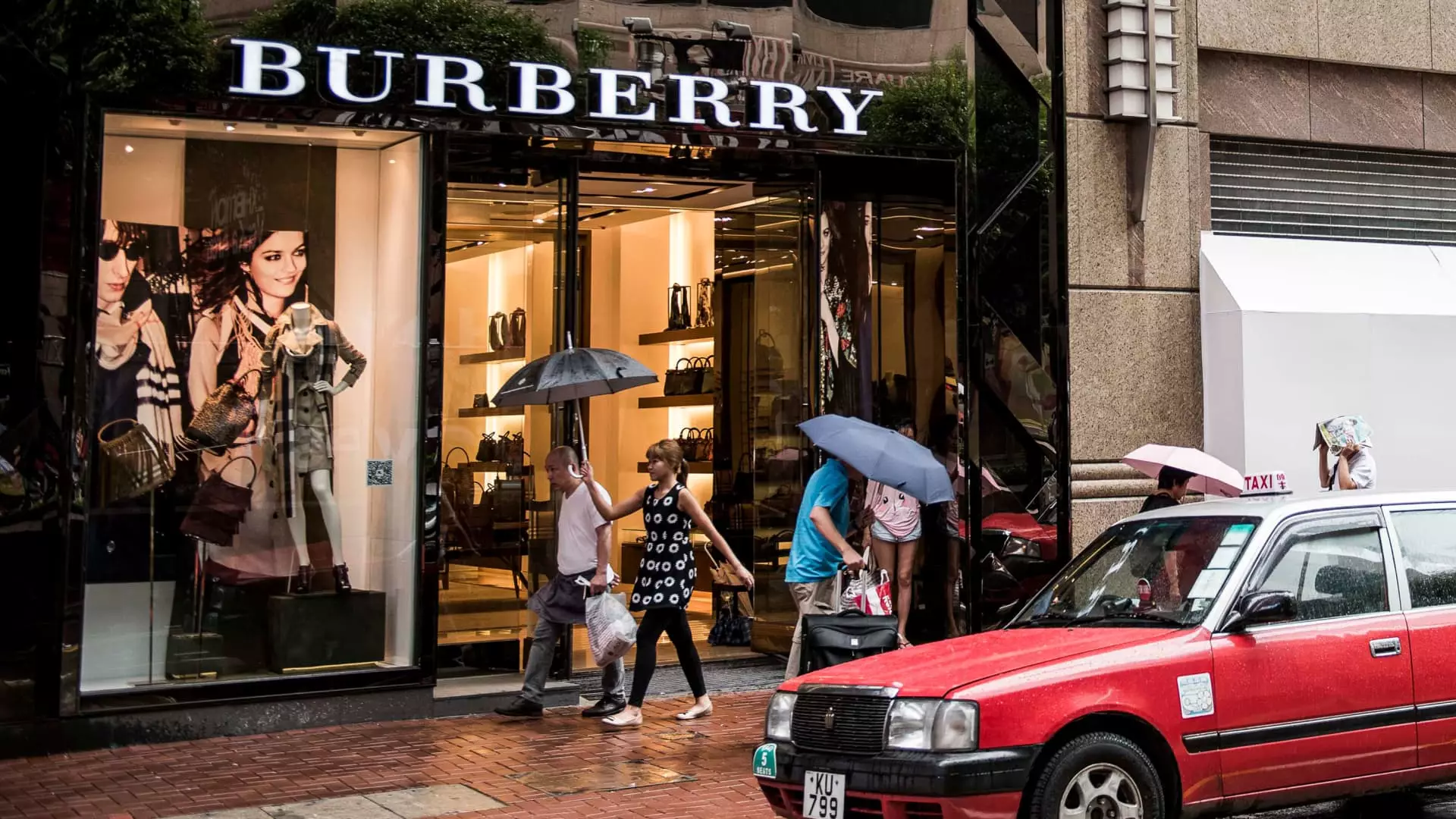Burberry, the iconic British luxury brand, faced a significant setback as shares plummeted by over 15% in early trading on Monday. The company issued a profit warning, announcing the possibility of an operating loss for the first half of the year and a full-year operating profit below expectations. Joshua Schulman, a former executive of Michael Kors and Coach, was appointed as the new CEO, replacing Jonathan Akeroyd who stepped down by mutual agreement with the Board.
Financial Performance and Dividend Suspension
The 168-year-old fashion house reported a 21% decline in comparable store sales during the first quarter, with retail revenue amounting to £458 million. The company also suspended its dividend payments for the fiscal year, citing the need to focus on cost savings and operational improvements. This financial downturn came as a shock to investors and analysts, with RBC analysts expressing concerns about Burberry’s brand momentum and market share losses.
Burberry’s struggles were exacerbated by a challenging economic environment, with slowing luxury demand in key regions such as Europe, the Middle East, India, Africa, Asia Pacific, and the Americas. The company attributed this slowdown to macroeconomic uncertainties affecting consumer spending patterns. In response, Burberry outlined a strategy to reconnect with its core customer base by offering a broader range of everyday luxury products, revamping its brand communications, and implementing cost-saving measures.
Known for its iconic trench coats, handbags, and signature “Burberry check,” the fashion house has been undergoing a transformation to elevate its brand image. Akeroyd, who succeeded Marco Gobbetti in 2021, has been leading the company’s efforts to reposition itself in the luxury market. The recent leadership change and operational realignment reflect Burberry’s commitment to adapting to changing consumer preferences and market dynamics.
Despite the challenges faced by Burberry, the company remains optimistic about its long-term growth prospects. The strategic focus on product diversification, digital innovation, and operational efficiency is expected to drive improvements in the second half of the year. By refocusing on its core values and strengthening its competitive position, Burberry aims to regain market share and sustain its legacy as a premier luxury brand in the global fashion industry.
Burberry’s disappointing first-quarter performance serves as a reminder of the volatility in the luxury retail sector and the need for constant innovation and adaptation to stay competitive. The company’s response to the current challenges will determine its future success and relevance in an ever-changing market landscape.

